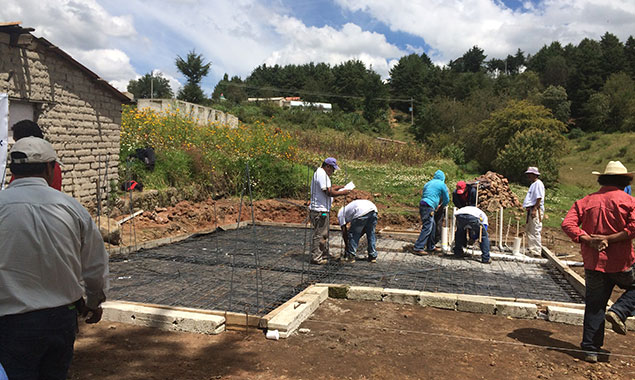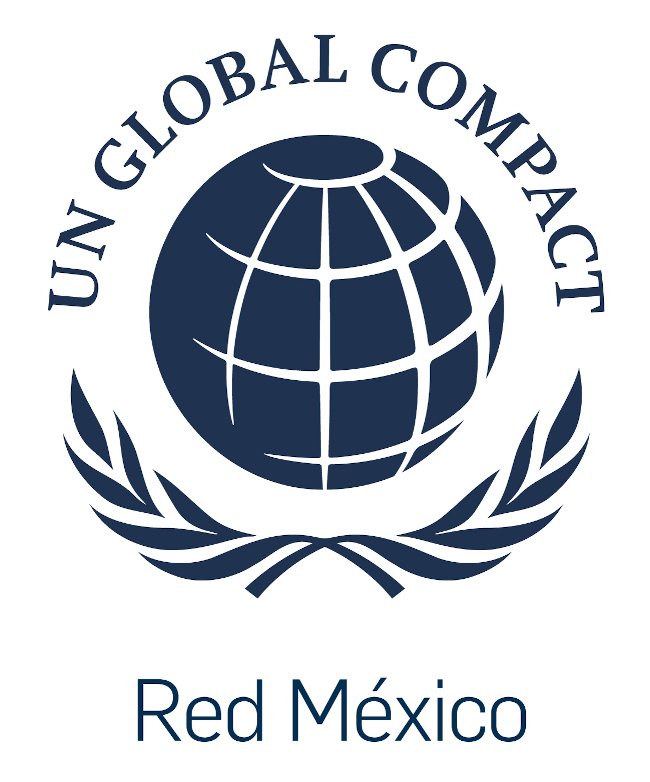People & Communities
Our People & Communities
In CEMEX, we know we cannot thrive in a world of poverty, inequality, unrest, and environmental stress, so it is in our vital interest to take collaborative action with governments, businesses, and members of society to transform our business and our world. Here are some of the most outstanding stories, examples, and testimonials.
| COMMUNITY PARTNERS (i.e. individuals positively impacted from our social initiatives) (Thousand) |
|||
|---|---|---|---|
| 2018 | 2019 | 2020 | 2021 |
| 16,133 | 17,616 | 23,227 | 25,391 |
To date, CEMEX has collaborated with more than 25 million people globally, keeping us on track to achieve our goal of 30 million community partners by 2030
Through our Post Disaster Recovery Project (PIR), we have participated in the reconstruction of housing affected by the 2017 earthquake in Oaxaca and Chiapas, Mexico. To date, we have built 139 houses through a mixed finance schemed including public and private partnerships working with 1,796 people through our integral response program.
The Gómez Mandujano family was amongst those affected by the earthquake that occurred in Villahermosa, Villaflores, Chiapas, by the end of 2017. The Post Disaster Recovery Project allowed them to get back on their feet and learn the construction trade. They have built four dwellings since, for them and their neighbors. After the dwellings were built, Francisco, Luis Octavio, Fredy and Christian, from the Gómez Girón family, can complement their farming activities with construction, allowing them to increase their income and enhance their quality of life.
Interview: Francisco Gómez Girón
Background
- Francisco Gómez, or "Chico", as he is referred to by his family and friends, was born in Tenejapa, de los Altos de Chiapas.
- He arrived looking for stability in the Community of Villahermosa and a livelihood in agriculture, 27 years ago, as Tenejapa experienced conflict.
- Along with Francisco, 5 more families arrived, the community was home to only 14 families by that time.
- It was in Villahermosa where Francisco married Marisa and where they raised their 11 children.
Earthquakes in September 2017
- It scared them and damaged their house, where 10 people lived.
- It was a simple home made out of adobe bricks and sheet metal roof, with an outside kitchen and latrine, where they suffered when weather got rough.
During the Chiapas PIR
- Chico had never worked in construction, he had only performed some self-construction jobs with adobe.
- He and his family attended the participatory housing design sessions and training workshops.
During the participatory sessions
- They did not understand why it was best to have the bath inside... architects explained them thoroughly and they acknowledged the benefit.
- When they saw the scale model they were thrilled....they confirmed that was the house they would like to live in.
- "The room divisions are a very good idea... we understood it was adequate for the needs of each family".
- Francisco mentions..."My older sons, Luis Octavio, Freddy and Christian have found the workshops really useful as means of work, they have learnt to work on the trade, they will not forget about it".
- "Being able to work locally is quite valuable...we will not have to move to look for jobs and people will live near their families".
- He considers that the money that has entered the community...is very important for its growth, things look different.
Other learnings
- It has been a challenge to adapt to using safety equipment...but it is important.
- During the project, the family's active participation on carrying materials has been crucial...Francisco hopes this is the start for them to support each other in the future...the project has set the example.
- They have strengthened their community bonds through making blocks and moving materials, they now spend more time with each other.

What do you think of the new house?
- Francisco mentions he was ecstatic when he saw it... it was what he had dreamt of.
- They never thought a project like PIR could exist in their community.
- When in 2012 Francisco left to work in USA (Phoenix) for a year, he dreamt sending money to build his house in Chiapas, but life at Phoenix was very expensive and it did not allow him to save after paying the rent.
- Initial benefits perceived by the family:
- Thermal comfort ("No cold or heat").
- Protection from wind and rain ("We are not afraid to lose our roof").
- Adequate and effective lightning achieved by the white walls ("Kids can study in the evening with only one lightbulb").
- Prevents mosquitos and snakes from getting in the house ("We do not sleep with sheets on our faces, nor are we afraid of snakes crawling out of bed").
- The interior bath raised expectations ("We won't need to come out at night with fear of falling, we will not wait to go to the bathroom in the morning and we will be able to bathe without getting sick in winter").
After a decade of operation, the CEMEX-Tec de Monterrey Center for Sustainable Communities closed its doors in 2021. This Center focused on promoting a better quality of life in rural and urban environments through entrepreneurship programs, innovation, applied research, and creating spaces for collaboration. Throughout its existence, it built a unique ecosystem consisting of more than 8,600 students, social innovators, community entrepreneurs, and leaders of multi-sectoral initiatives from 90 countries and recognized high-impact projects that fostered sustainable development and social innovation through the CEMEX-TEC Award. The Center’s legacy will remain as part of CEMEX’s social businesses portfolio through Yo Construyo and the Community Environmental Restoration Program.
Two of our intrapreneurs were selected to participate in the Young SDG Innovators Program for the UN Global Compact, in order to accelerate our contribution to the 2030 Agenda.
Here is what they think.
"I’m passionate about using my work and expertise to enable society to find sustainable ways of development and community benefit. I was encouraged by my supervisors to participate. This kind of initiative implies both a challenge and an opportunity to create a competitive advantage. I hope that this program will help us to ignite the implementation of our ideas and see them transformed into effective actions to eradicate poverty, protect the planet, and ensure prosperity for all."
| ,
"Over the next months, I’ll be working on developing an innovation ecosystem for CEMEX in Mexico, in which all private, public, and civil society organizations can collaborate to benefit society. I think the UN Global Compact is doing something great by bringing together young people from different backgrounds, industries, and countries and giving us the tools to further develop the vision that we all have in mind, which is contributing to a better world!"
| ,
"Participating in the YSDG Innovators program has allowed me to witness the level of commitment and all the efforts the company is making to build a better future for everyone. So far, it has been an amazing learning experience, a little bit daunting at times as my perspective grew, making me realize there are still many things we can do to contribute to a more sustainable future. Moreover, everyone we have reached out to has been very open to share their expertise and help us identify areas of opportunity, innovate, and bring value, not only to CEMEX, but also to our communities."
|
"In order to achieve the SDG´s, businesses need to collaborate in developing and innovating on their business models. The Young SDG Innovator Programme is giving me the opportunity to reach to different fronts inside CEMEX and collaborate with the extended network of UN Global Compact to try to contribute with an idea that will add value to the company and have an impact on the SDG´s."
|

